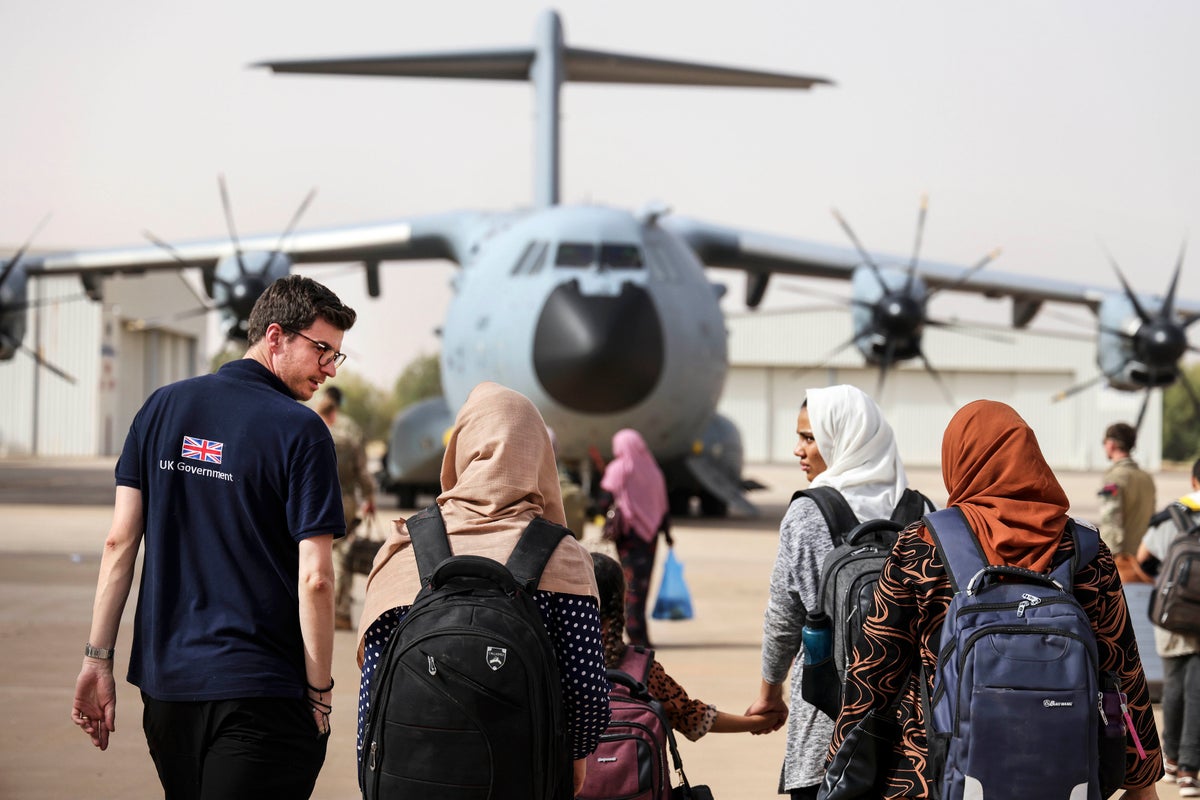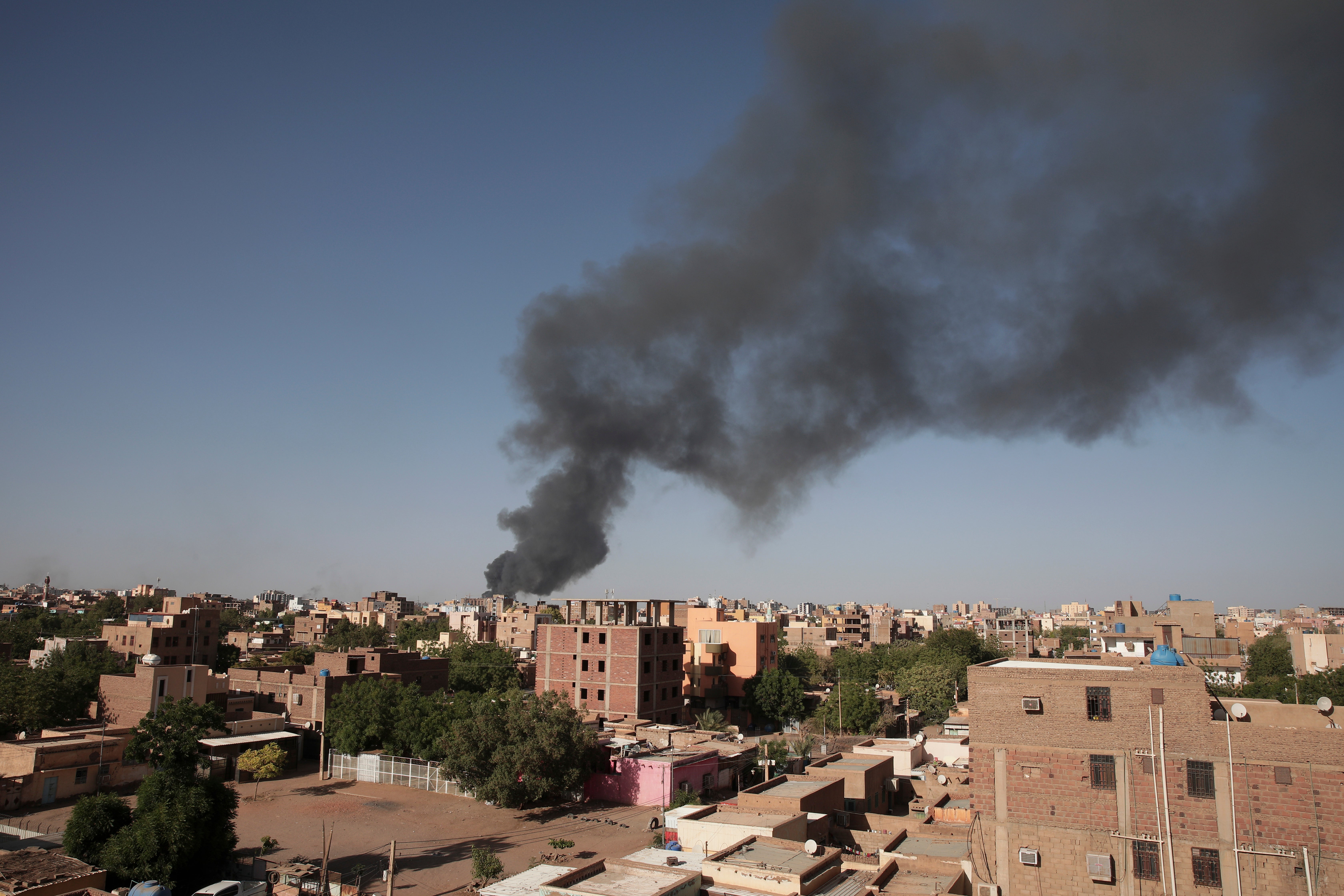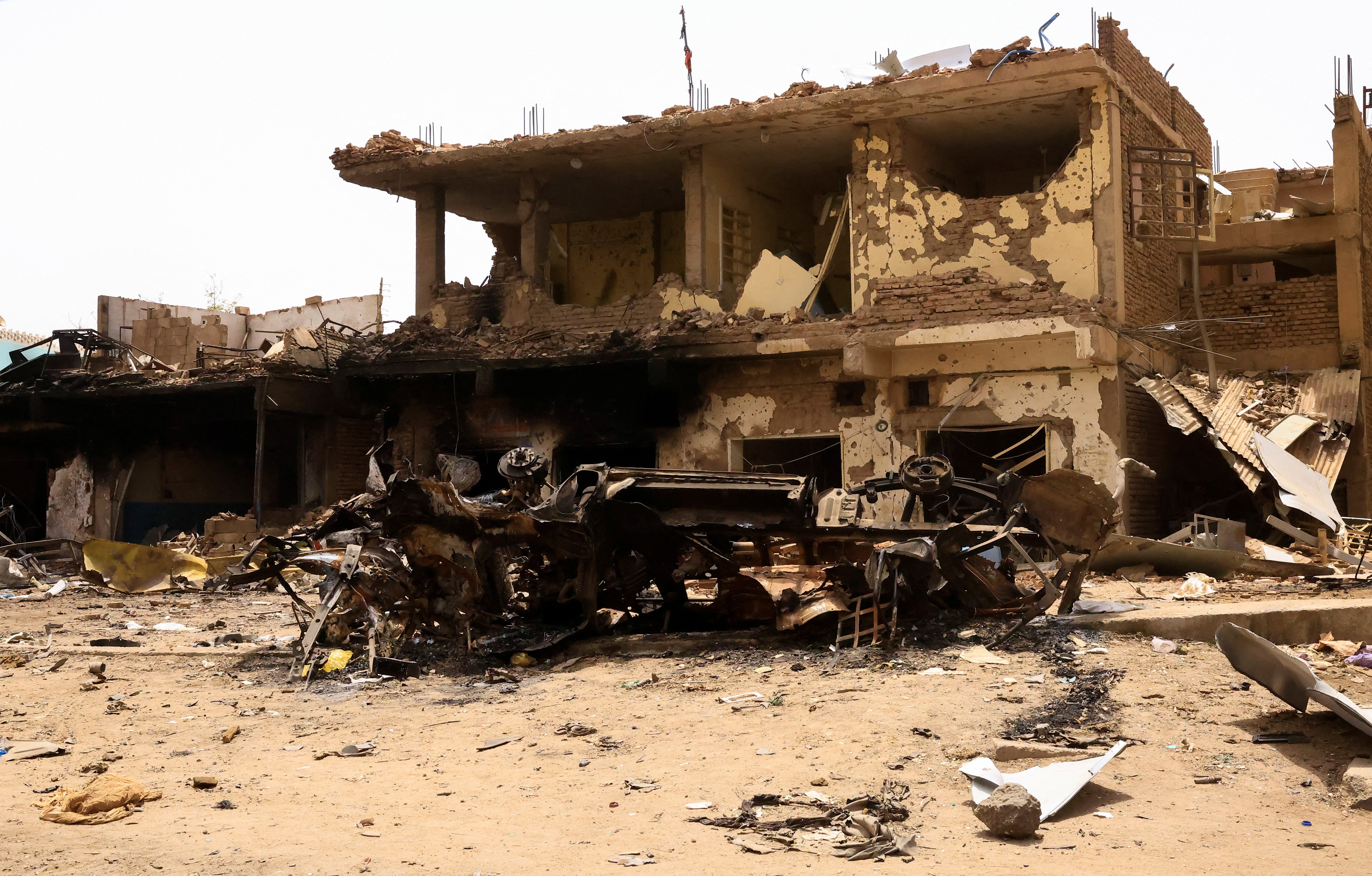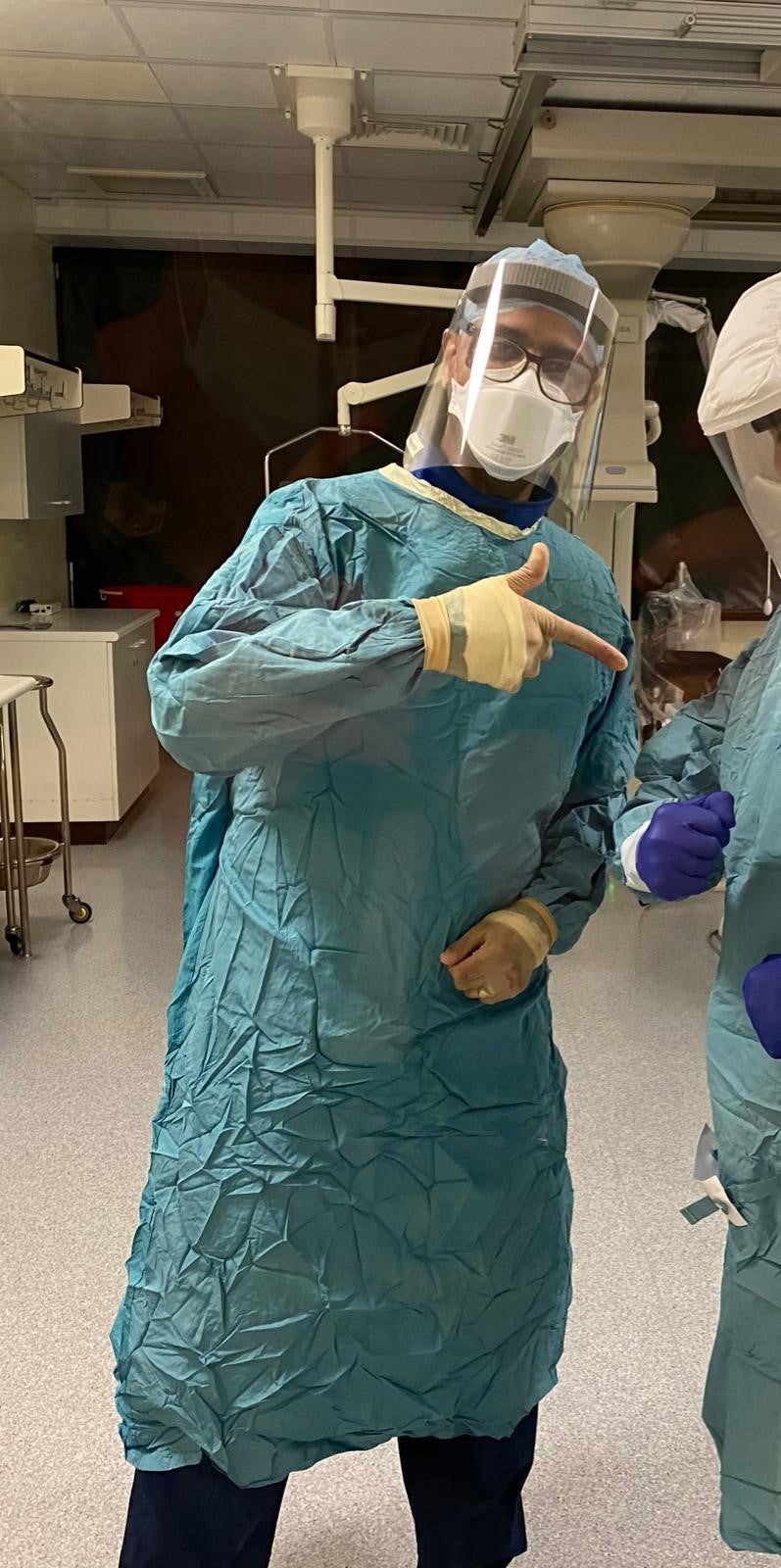
An NHS doctor who saved British lives during Covid has been “left to die” after British forces turned her away from evacuation points in Sudan.
The UK government is only allowing British passport holders and their families on to evacuation plans in Sudan, leaving at least eight NHS doctors in limbo over their safety, The Independent understands.
The government has now said anyone who is not a passport holder must find other routes to the UK, such as crossing the Egypt-Sudan border, where a humanitarian crisis is brewing.

One doctor, who works in an NHS trust based in Swindon, was turned away after nearly 24 hours of waiting at the UK army base and has now been left to find her own route out.
She has asked not to be named for safety reasons but told The Independent: “You will risk your life during Covid saving British lives, but when it comes to saving you, you are told very bluntly, ‘You are not English and you’re not allowed’.
“What does this country think, I’ll just go and work there and give everything, and then when it’s time to literally save my life - and this is a humanitarian situation it is life or death - you guys are leaving an NHS doctor to death.”
NHS Consultant Cardiologist Dr Mustafa Alhassan, 40, told The Independent he felt “betrayed” and “abandoned” by the British Government, after he was forced to evacuate himself and his 65-year-old mother from Sudan but is now stranded in Cairo, Egypt, unable to get back to treat his patients, some of whom are in life-threatening conditions.

The British-Sudanese dual national, who has worked in the NHS for 15 years, said, despite his pleas, the Foreign Office told him his mother, Amna Tawfig, who is Sudanese, needs a visa before she can travel to stay with him in safety in the UK, with an application taking three weeks and no guarantee a visa will then even be granted.
Dr Alhassan, who is based in Southampton, said he has already missed a whole week of work and has been forced to cancel clinics and operations. Now he is set to miss a whole month in total, which would amount to 64 patient appointments. He said: “These operations are time critical - patients are in life-threatening conditions and may not have three weeks. I need to get back to the UK now and get straight to looking after the people in my care.”
‘We slept on the pavement’
On Wednesday, after a gruelling, six-hour, “unsafe” journey from Wah Madani to Khartoum, which is the epicentre of the conflict, Dr L said she arrived at the UK military base at 11pm, and had to sleep on the pavement.

“There was no accommodation. There was nobody to say anything [to us]. We just slept on the pavement. People just slept on the pavement in the middle of the night. There were no toilets at all available to us. People just used the trees and the bushes in the military base.”
Once inside the military base, she said people were then sent to a “holding bay” for hours. “It was very hot. Obviously, there was nothing as it’s a military base. There was no cafeteria or like a shop you can buy food from, there were kids there [but] nothing, nothing at all.”
“Eventually, I was just told, ‘We apologise, you won’t be able to board because we’re only taking British nationals and passport holders’. I was there for eight hours at the time…I saw people who were there for two days,” she said.
Dr L was then escorted out and left with no transportation to the public road, and was then forced to stay in the local neighborhood after cross-fire broke out and then attempt the difficult journey back to Wah Madni.
“That was one of the difficult things, is getting out of the base after being denied…So it’s such an unsafe place to even attempt to do the journey…borders are very unstable at the moment.”
‘I shouldn’t have to choose between patients and mum’
Dr Alhassan - who said, “I have dedicated my life to the NHS” - was on holiday for a couple of weeks, visiting his family in Khartoum, when he woke up on the morning of 15 April to the sound of “cannon fire, missiles, warplanes, and gunfire all around us”.

After he said he received little help from the UK government for days, he planned to flee the ferocious fighting in Khartoum and cross the Egypt-Sudan border with his mother and his brother, who is Sudanese. The trio paid $500 dollars each to travel 15 hours on a bus. The family then waited 38 hours in dire conditions at the border, before his brother was refused entry.
Now that his brother cannot look after his mother in Cairo, Dr Alhassan does not want to leave her there on her own.
The father-of-three, whose wife is a GP, said: “I shouldn’t have to choose between looking after my patients and looking after my mum.”
A UK Government spokesperson said: “The evacuation response from Khartoum is open to all British nationals and their eligible dependents who wish to leave Sudan.
“Those who have existing entry clearance for the UK but are not the dependent of a British passport holder can still come to the UK via other points of exit, such as crossing the border into Egypt.”







